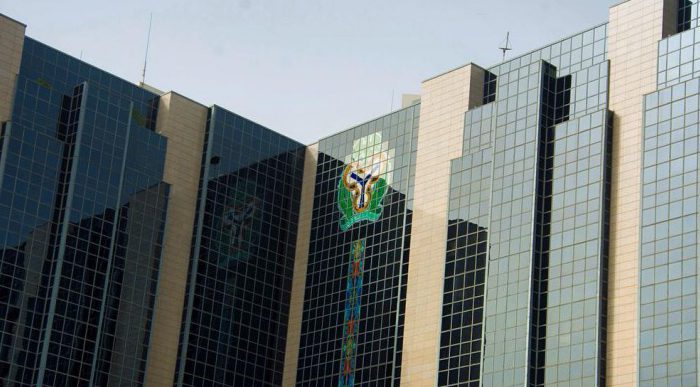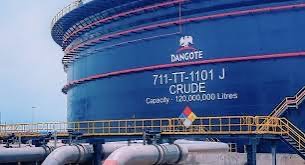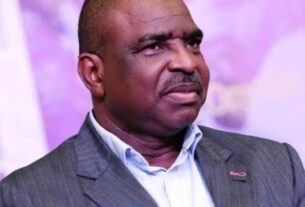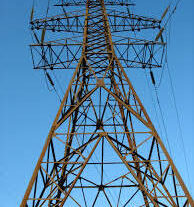Experts have said the 14 per cent interest rate by the Central Bank of Nigeria (CBN) will worsen the country’s economy rather than control inflation.
CBN on Tuesday raised the Monetary Policy Rate (MPR), known as the interest rate, by 100 basis points to 14 per cent, thereby tightening its monetary policy measures.
After its two-day meeting, the Monetary Policy Committee (MPC) retained the asymmetric corridor of +100/-700 basis points around the MPR, cash reserve ratio (CRR) at 27.5 per cent, and liquidity ratio at 30 per cent which according to the CBN Governor, Godwin Emefiele, was based on several economic headwinds which include supply chain disruption arising from the Russian-Ukraine war, and energy cost.
The decision, however, has drawn the ire of many stakeholders as the inflation rate had also surged to 18.60 per cent and Nigerians barely survive under the harsh and prevailing economic situation.
“This approach has not worked in the past when applied, with all the tightening done to date inflation has continued to increase”, stated Prof Anthony Kila, the CIAPS Director.
Kila, a renowned political economist and Professor of Strategy and Development, explained that the demands in our economy are basic needs such as food, energy and health, and not things that can be substituted let alone done without.
Raising the interest rate, Kila said was logical but asserted that the problem of Nigeria had been two kinds of specific issues.
The supply is lower than demand, noting that ”Generally we don’t have enough factories and other production centres; to make matters worse the security problem we are facing is reducing our already insufficient productive capacity”.
He was not hopeful that these monetary policies alone would solve Nigeria’s problem, “but make things worse”.
“We need big interventions that will ginger production and fight unemployment”.
“The rest of the world is struggling too due to Covid and the war. So, we are not immune to those effects but the focus should be on turning these challenges into opportunities by producing for ourselves and even exporting.
The Founder/Chief Executive Officer of the Centre for the Promotion of Private Enterprise (CPPE), Muda Yusuf aligned with Kila’s position, arguing that the CBN had failed to reckon with domestic peculiarities.
“The key drivers of Nigeria inflation are supply-side variables, not demand driven. The previous hike in the policy rate of 150 basis points in May did not have any significant impact on the inflation numbers. If anything, the general price level became even more elevated.
“We recognise that the primary mandate of the CBN is price stability, but numerous headwinds have posed significant risks to this critical objective,” Yusuf explained.
According to him, surging commodity prices and impact on energy costs, disruptive effects of insecurity on agricultural output, and global supply chain disruptions are some of the headwinds.
“The hike in MPR would not change these variables,” he stressed.
Already, bank lending has been constrained by the high CRR [many operators in the sector claim that effective CRR is as high as 50 per cent or more for many banks], the discretionary debts by the apex bank and liquidity ratio of 30 per cent. The lending situation in the economy is already very tight, he said.
Yusuf, the immediate former Director-General, Lagos Chamber of Commerce and Industry (LCCI) is worried that the new MPR hike would mean that the cost of credit to the few beneficiaries of the bank credits would increase, which will impact their operating costs, prices of their products and profit margins, adding that the equities market might be adversely impacted as well.
To reverse the spiralling inflationary pressure, the CPPE boss said the government need to address the security concerns, disrupting agricultural activities; reform the foreign exchange market to stabilise the exchange rate, reduce volatility and stimulate forex inflows; address forex liquidity issues through appropriate policy measures; fix the structural problems to boost productivity and competitiveness of domestic firms; address the challenge of high transportation and logistics costs.
The government also need to reduce fiscal deficit monetisation to minimise the incidence of high-powered money in the economy; manage climate change consequences to reduce flooding and desertification; ensure the restoration of normalcy and good order at the nation’s ports to reduce transaction costs; reduce import duty on intermediate products and raw materials for industries to reduce production costs, especially in the light of the sharp depreciation in the exchange rate; address concerns around high energy cost; and create an investment-friendly tax environment to boost investments and output in the economy, Yusuf suggested.
Ikechi Agbugba, a senior lecturer, at the Department of Agriculture and Applied Economics at the Rivers State University, said the hike in interest rate, increase in inflation rate and unexplainable cost of living could create a bad situation as played out in Sri Lanka.
He said, “Sadly, the inflation rate could undoubtedly be as a result of the MPC or the COVID pandemic or even the Ukraine/Russian War, which has resulted in an increment in the commodity price and the aberration thing that Nigeria is importing refined fuel?”
He noted that the percentage change in the average composite Consumer Price Index (CPI) for the 12 months ended in June 2022 over the average of the CPI for the previous 12 months period resulted in 16.54 per cent; a clear implication that a 0.62 per cent increase compared to 15.93 per cent recorded in June 2021.
Noting similarly, he said in the United States, the CPI rose 6.8 per cent between November 2020 and November 2021, spurred by price increases for gasoline, food, and housing as higher energy costs caused the inflation to rise further in 2022, reaching 9.1 per cent which is usual and strange price spike, since 1981.
“Truly, countries across the globe pumped in about 15 trillion dollars as financial support to address the pandemic sounded a negative signal, because we should not be shocked or astonished about the galloping prices.
“I foresee some disruption in the social life of people such that had hampered the life of Sri Lankan where the citizens toppled the government. This unrest situation and dissatisfaction with their government led to Sri Lanka’s entire cabinet apart from the president. This could descend into a full-blown political and economic crisis, as more persons will contend with starvation, death and severe crisis. According to sources, Sri Lanka now needs a fresh government to rebuild its economy. No doubt, the case of Sri Lanka is similar to that of Nigeria at this point,” Agbugba added.









